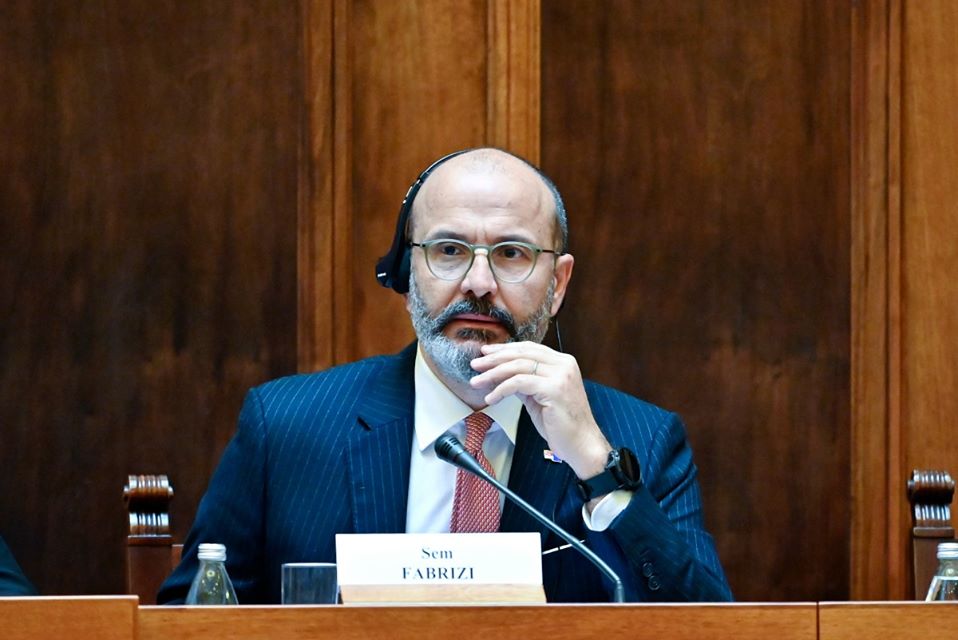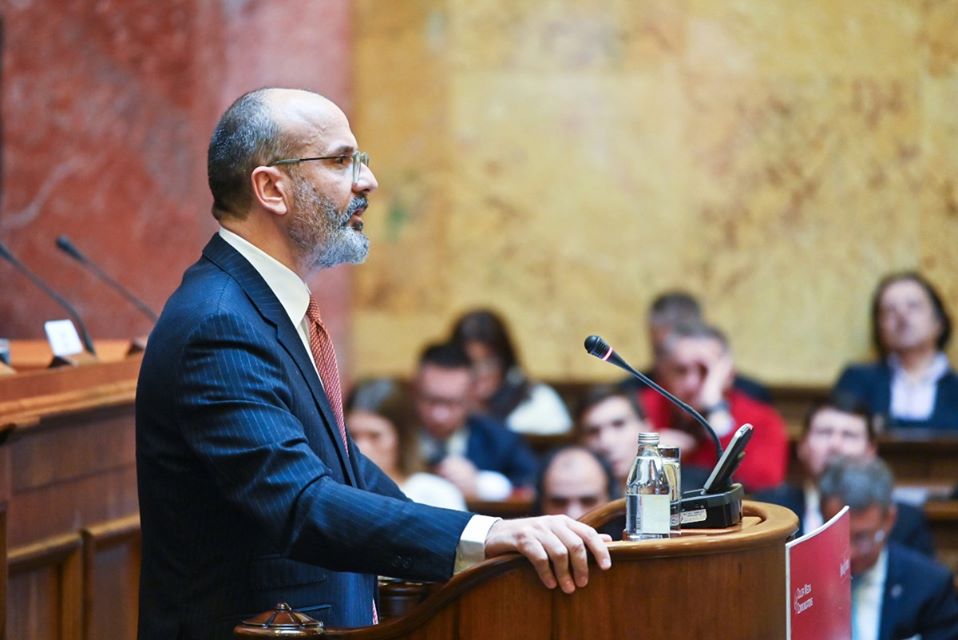For us, the real benchmark of the accession process is not in the opening of chapters, but rather closing them

Ambassador Sem Fabrizi, Head of the EU Delegation to Serbia, spoke at the opening of the World in 2020 Conference. Here are some of the most interesting parts of his speech.“As the EU Ambassador to Serbia, I wish to focus in particular on Serbia’s path towards the European Union. What can we learn from the past year? Is there room for improvement? What is our home – work for next year? I will reflect on two key points that seem to be most significant at the moment – Serbia’s achievements on the way to the EU and Serbia’s European perspective. Let me first start by stressing that 2019 has been an important year. Within the framework of the accession negotiations, Serbia has passed the magic halfway goal in terms of the number of opened chapters. As we have received good news from Brussels on 10 December – Serbia has opened a new chapter – Chapter 4 – Free Movement of Capital. Therefore, Serbia has opened 18 out of a total of 35 negotiation chapters. With the opening of this chapter, the EU recognised the important progress Serbia made in the past year, including the de-listingfrom the Financial Action Task Force (FATF)’s black list. But, as I see that a lot of public attention is given to the opening of chapters, I wish to focus a bit on the significance of this process. For us, the real benchmark of the accession process is not in the opening of chapters, but rather closing them. We consider the opening as a strong sign that Serbia is on the right path as far as a specific sector goes, but the real work still needs to be done. As I often stress, this is not a sprint, but a marathon. Essentially, the rule of law remains a key indicator of genuine progress in the accession process. In that light, Serbia needs to invest significant efforts to accelerate the pace of all the necessary reforms in this segment, especially focusing on the independence of the judiciary, ensuring fundamental rights and freedoms, fight against corruption and the organised crime. In the past few years, I often got the feeling that Serbia is approaching the EU at two different speeds. While we need and want to see more in areas such as the Rule of Law, we have grounds for real optimism in the economic area. Of course, there is still some homework left, particularly in the area of structural reforms. The recently adopted 2019 budget is expected to reach the planned forecast: a deficit of 0.5% of GDP.It also leaves an important fiscal space for capital investments that Serbia very much needs. Serbia has also considerably improveddebt sustainability, with public debt moving down, towards 50% of the GDP. The inflation is low and stable, and the inflow of foreign direct investments simply impressive.On the other hand, Serbia needs to accelerate the pace of major structural reforms: of public ad – ministration – this we also stressin both our Annual Report and theassessment of Serbia’s Economic Reform Programme. The business environment needs to be governedby the principle of fair competition, and the implementation of big infrastructural projects and investments need to be more transparent.

SERBIA’S EUROPEAN PERSPECTIVE
When we move from the past to the future, let me be very clear: geographically, culturally, strategically, historically, politically andeconomically, Serbia belongs to the EU! I cannot deny noticing thatthe October European Council’s delay in opening negotiations with Albania and North Macedonia has caused a lot of disappointment, concern, and even scepticism over the region’s European path.Therefore, I will use this opportunity to transmit a very important message to all of you – the EU’s commitment to the European perspective of the Western Balkans remains unchanged. This means that the EU integration of Serbia and the entire Western Balkans region remains an important strategic policy, in our mutual interest and our final goal.This was very clearly confirmed by the newly appointed European Commission and the new Commissioner for Neighbourhood andEnlargement, Olivér Várhelyi in his address to the European Parliament: “This region is an integral part of Europe and its accessionperspective must be credible.”That is why the EU will revisit this issue before the EU – Western Balkans Leaders’ Summit in Zagreb in May 2020. And this is why, it is extremely important for Serbia to continue the reform process, speed it up and do its best to convince all the sceptics of what we already know, i.e. that Serbia’s place is within the EU.To conclude, it is clear that the rule of law and economic development go hand in hand, and that the enlargement is not just a technicalprocess, but a major political project in the EU as well as Serbia. And while we see positive trends in economic figures, we wish to see therule of law reforms matching the speed of the economic ones.